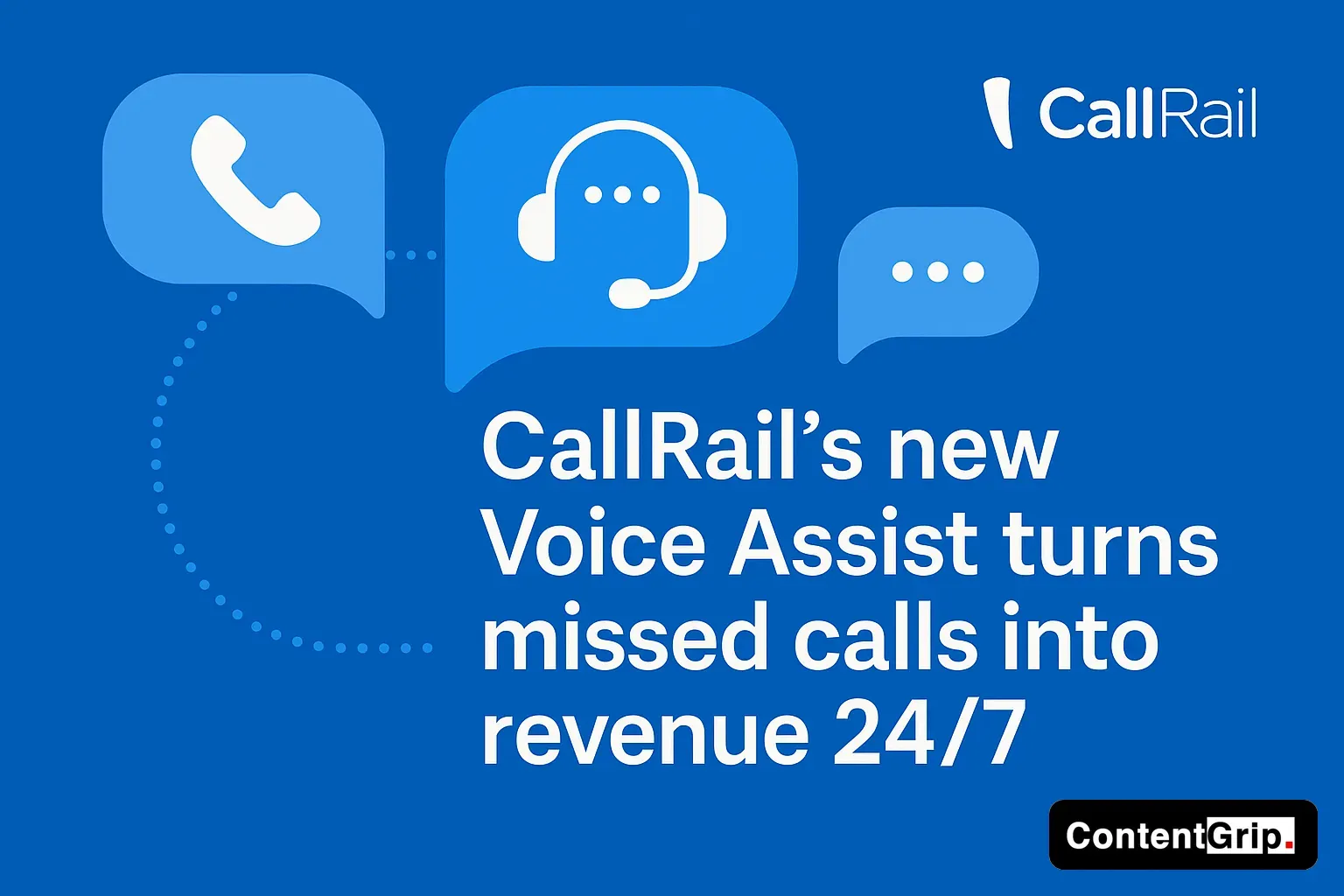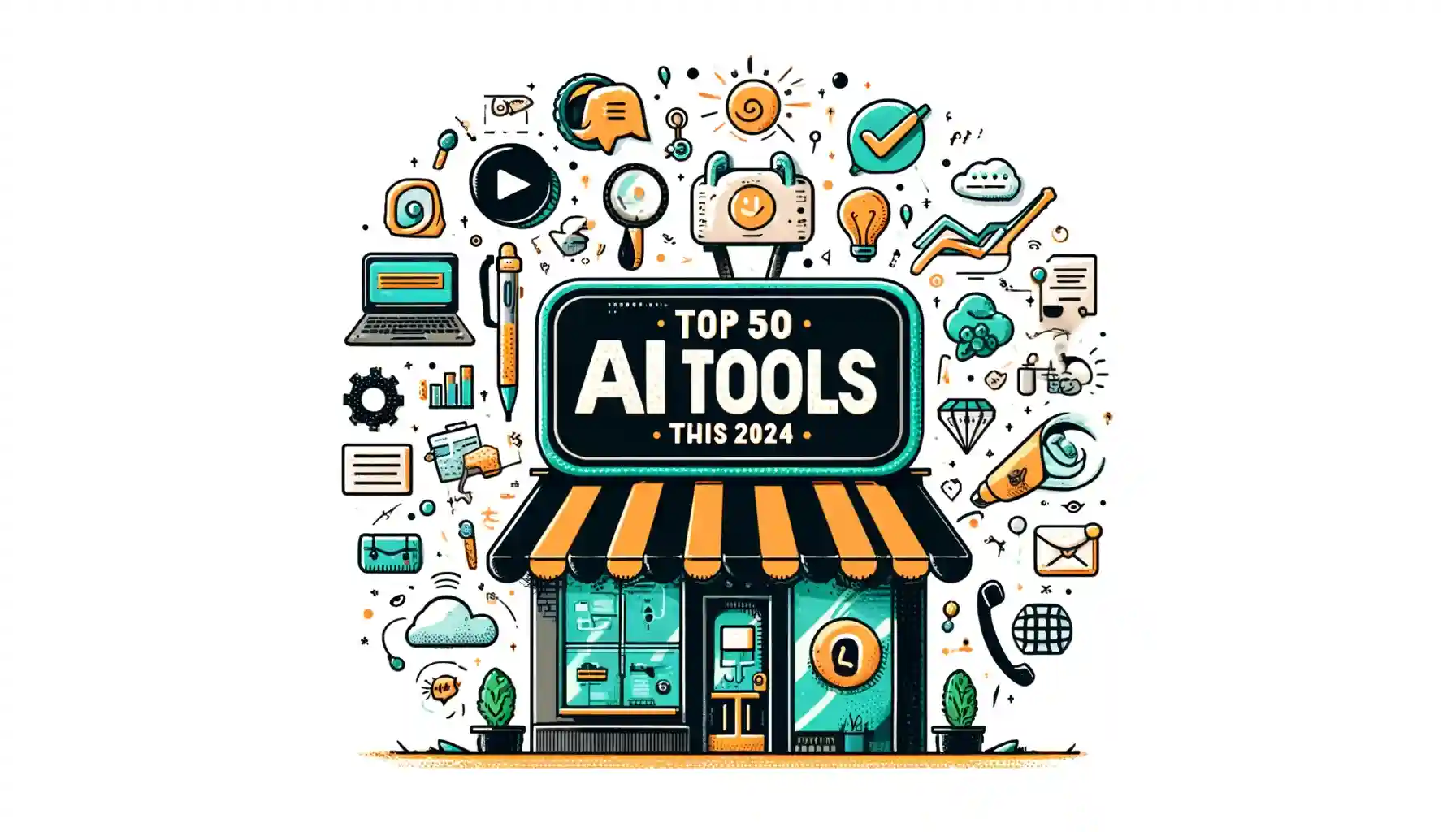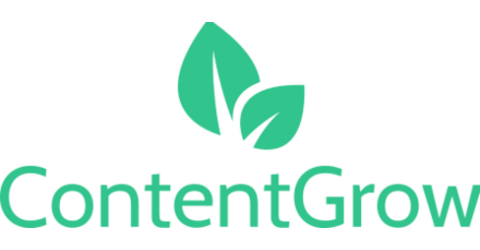CallRail launches Voice Assist: 24/7 AI tool captures missed call revenue
CallRail's Voice Assist is an agentic AI assistant that answers calls after hours, helping marketers capture missed leads and improve ROI by up to 20%.

Atlanta-based CallRail has unveiled Voice Assist, an agentic AI assistant designed to ensure businesses never miss a lead opportunity, even after hours. The new tool directly addresses a critical pain point for marketers and SMBs: according to CallRail's data, over 50 million customer calls go unanswered across their platform each year, representing significant lost revenue and wasted marketing spend.
Voice Assist extends the functionality of CallRail's lead engagement platform, which currently claims to serve more than 220,000 businesses worldwide. By handling inbound calls with natural, real-time conversations and automating follow-up, the AI tool aims to transform missed calls into revenue growth. For marketing agencies and their SMB clients, this promises to improve lead conversion rates and ROI by up to 20%.
What is Voice Assist?
Voice Assist is an AI-powered virtual agent that answers calls and engages callers in natural conversations when staff are unavailable. Unlike standard voicemail or basic call routing systems, Voice Assist can understand caller intent, capture lead information, answer questions, schedule appointments, and send automated follow-ups—all with human-like interactions.
The tool is designed specifically for marketing agencies and small-to-medium businesses that need to maximize every lead opportunity. It integrates directly with the CallRail platform, leveraging existing call data and marketing attribution to better understand and serve callers.
Key features of Voice Assist include:
- Self-training AI: Voice Assist can train itself using historical call data and website content, reducing the setup time typically required for virtual agents.
- Authentic, responsive interactions: The AI adapts its tone based on caller intent and conversation flow, creating more natural exchanges with low latency.
- Seamless handoffs: When human intervention is needed, Voice Assist provides comprehensive call summaries, transcriptions, and intake forms.
- CRM integration: Call data, tags, and summaries sync directly to platforms like HubSpot, Salesforce, and Clio.
- Automated text follow-up: AI-generated texts with scheduling links and personalized messages maintain engagement after the call.
For marketers, Voice Assist enables 24/7 ad campaigns without worrying about missed calls, potentially lowering cost per lead (CPL) and improving site rankings through better response rates.

What is Voice Assist's pricing?
CallRail has not yet disclosed specific pricing for Voice Assist, as the product is currently available in limited beta. However, CallRail's existing products follow a subscription-based model with plans typically ranging from US$45 to US$500+ per month, depending on features and call volume.
Interested businesses can request to join the beta program through CallRail's website. Based on the company's current pricing structure, Voice Assist will likely be offered either as an add-on to existing packages or as part of a premium tier.
What is CallRail's traction?
Founded in 2011 and headquartered in Atlanta, Georgia, CallRail has established itself as a leading player in the call tracking and marketing analytics space. The company claims to serve more than 220,000 businesses worldwide and has attracted significant investment.
CallRail has raised approximately US$160 million in funding, with backers including Sageview Capital, Leaders Fund, and Stripes. The company has grown both organically and through strategic acquisitions, adding Form Tracking and Conversation Intelligence capabilities to its platform.
The launch of Voice Assist represents CallRail's push into the growing agentic AI market, building on its existing analytics and attribution technology. With an estimated 300+ employees, CallRail has maintained steady growth in the competitive martech landscape.
CallRail boasts a strong integration ecosystem, with over 50 connections to popular marketing and sales platforms. This positions Voice Assist to easily fit into existing technology stacks for both agencies and direct clients.
Who are CallRail's founders?
CallRail was co-founded by Andy Powell and Kevin Mann in 2011. The company's current leadership includes Marc Ginsberg as CEO and Ryan Johnson as Chief Product Officer (CPO).
Ryan Johnson, who was quoted in the Voice Assist announcement, oversees product strategy and development at CallRail. He emphasized the company's focus on delivering real business impact through AI adoption, noting that Voice Assist was created "to ensure no lead is ever lost."
Who are CallRail's competitors?
The call analytics and AI assistant space has several established players competing with CallRail:
- Invoca: A conversation intelligence platform focused primarily on enterprise clients, Invoca has raised US$184 million to date. The company expanded its market position by acquiring DialogTech in 2021 and differentiates itself through advanced AI for customer journey analysis. Invoca typically serves larger enterprises with complex call management needs.
- CallTrackingMetrics: This privately-held company offers call tracking and contact center software with strong HIPAA compliance features and international capabilities. CallTrackingMetrics emphasizes its contact center functionality alongside marketing attribution, positioning it slightly differently from CallRail's marketing-first approach.
- WhatConverts: A bootstrapped competitor, WhatConverts provides lead tracking and marketing attribution with a focus on comprehensive lead management beyond just calls. With a simpler pricing model and strong agency focus, WhatConverts appeals to marketing agencies looking for straightforward lead tracking solutions.
While these competitors offer similar core functionality around call tracking and analytics, CallRail's Voice Assist represents a move toward more autonomous, agentic AI capabilities that can actively engage with callers rather than simply analyzing conversations after they occur.
What marketers should know
For marketing professionals, particularly those at agencies serving multiple SMB clients, Voice Assist potentially solves several persistent challenges:
- Extended campaign hours: Marketers can run ads outside normal business hours without concerns about wasted budget on unanswered calls.
- Improved attribution: With every call handled and documented, attribution becomes more accurate, allowing for better campaign optimization.
- Enhanced client ROI: By capturing leads that would otherwise be missed, agencies can demonstrate improved return on ad spend for clients.
- Reduced manual follow-up: Automated text follow-ups and CRM integration mean less manual work managing leads.
The tool also allows for after-hours lead qualification, ensuring that when human team members return, they can focus on the most promising opportunities first. As the marketing industry continues to emphasize efficiency and ROI, tools like Voice Assist represent the growing intersection of AI automation and lead generation.
Voice Assist is currently available through a limited beta program. Marketers interested in testing the tool can request access through CallRail's website.




